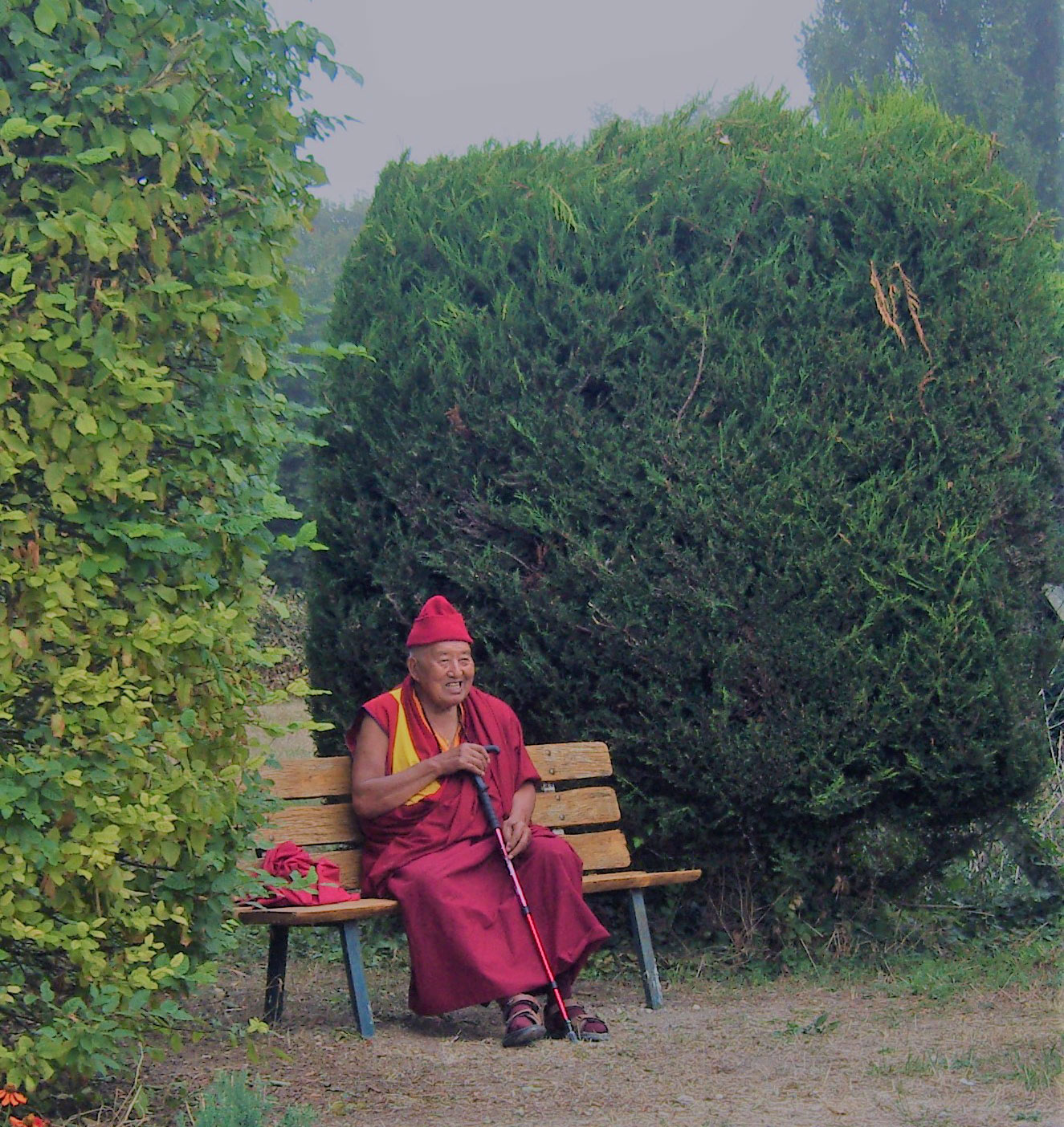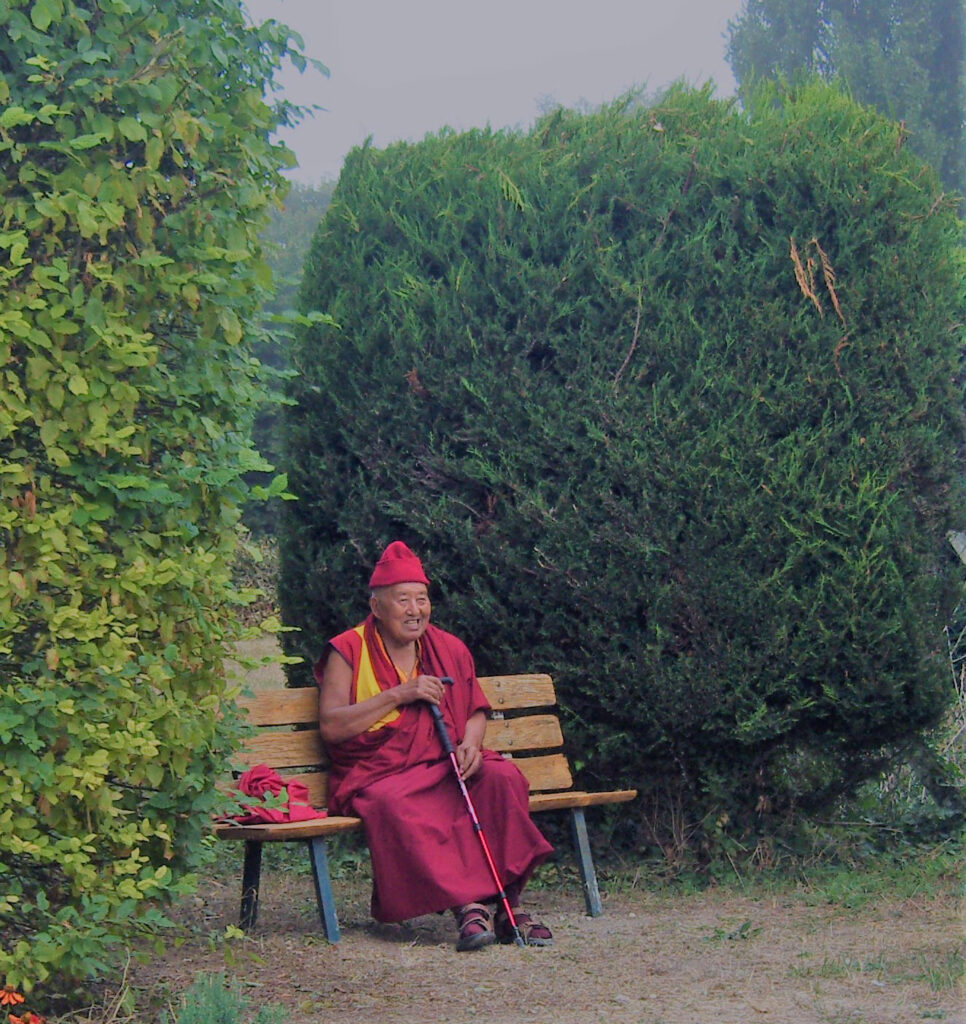A word on practising in modern times

Advice from Yongdzin Lopön Tenzin Namdak Rinpoche
Sometimes I read you the biographies of the Lineage Masters who spent their whole life in a cave. So maybe some of you think of cutting off your living conditions and going and living like that. But that is not possible in modern times.[1]

It is important to understand this. According to the times we live in, usually, don’t think that you should go away from some certain place to search for solitude or something. You can read history or biographies of the early Masters, but that time is over. You have to think: we are now in modern society. It is not easy. In early times, especially in Tibet – although not all Tibetans were practitioners, not at all – some people would first study and gain knowledge, and then realize, and then practise. They would spend their whole life in solitude. In those days, if someone went into solitude seriously then anybody nearby who saw them staying in some cave somewhere would immediately serve them and help them. The local people knew that the practitioner was a living person who needed simple things like firewood, food, tsampa or some simple things. They would serve the practitioner willingly. He would not be living in luxury at all, but he would not be starving, so in that way he could spend his time practising continuously. Those practitioners were real, living people but they didn’t care about their worldly conditions. I mean, they didn’t expect or prepare any living conditions at all because they already knew someone would help them, in those days. But that time is over. The texts are still there, the system is still the same, it is written here, but if you do this nowadays, you will starve if you don’t prepare anything, you see. Follow the teachings but don’t follow what these Masters did. If you try to, you will be starving or freezing!
In modern times it is better for practitioners to prepare. I am always talking about our two conditions. Whatever you are doing in your lifetime to ensure your living conditions, you should carry on with that, but don’t have too high expectations or go after a reputation; that doesn’t help very much. But you have to do something to earn a living. Otherwise, we call it Ngejung[2] – you collect many different teachings, you listen to many different Masters and suddenly you think: ‘Oh, this life is no use!’, and you stop everything and try to concentrate on practice for a little while. But your property, possessions and facilities won’t last so long. If you go back and try to carry on with your job, relationships and so on afterwards it is really hard to find work. So it is better to carry on continuously in a simple way, not doing anything special, not having too high expectations, not expecting luxury, but just living in a simple way.[3]
[1] Extracted from: Yongdzin Lopön Tenzin Rinpoche, Namkha Truldzö: The Commentary on the Precious Oral transmission of the Great Perfection which is called the Treasury of Space, Shenten Dargye Ling, 23 July – 11August 2006, Trnscr. & ed. Carol Ermakova and DmitryErmakov (Blou, Shenten Dargye Ling, 2006), Week II, p. 101 (Second Edition p. 143).
[2] Tib. nges ‘byung – renunciation.
[3] Extracted from: Nyachen Lishu Tagring, Yangtse Longchen, Teachings by Yongdzin Lopön Tenzin Namdak Rinpoche, trnscr. & ed. Carol Ermakova and Dmitry Ermakov, Shenten Dargye Ling, France, 27 July – 15 August 2008, pp. 236-237.

2 Responses
This text is pure wisdom. He is a great teacher with the consciousness of an awakened heart. Living consciously and doing what you can is already a great deal. Step by step, we advance along the path of consciousness and offer what we can to all those on our path so that one day they can all be freed from their suffering and the causes of their suffering.
Indeed.